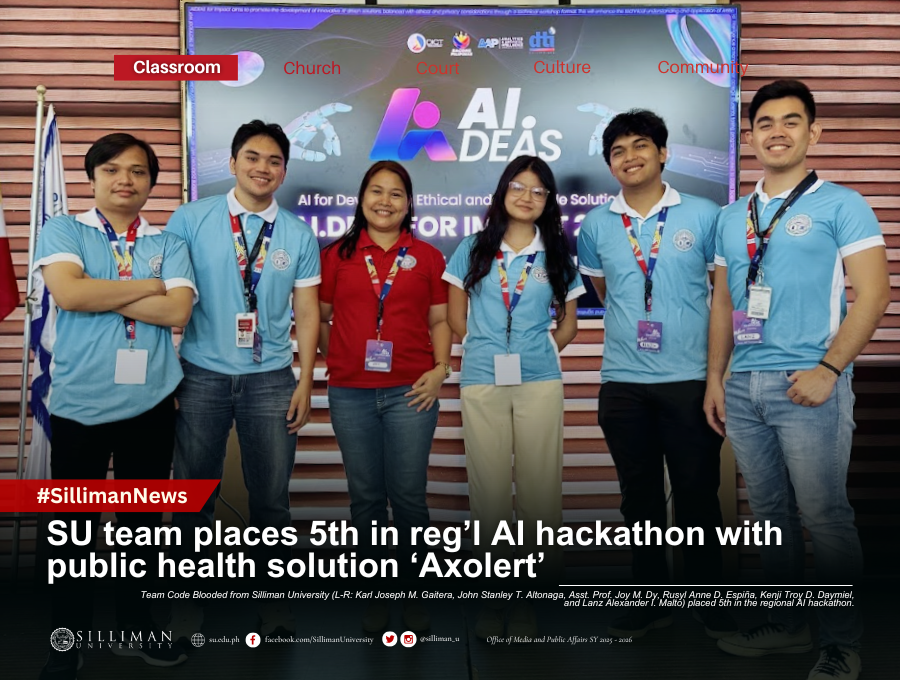
SU team places 5th in reg’l AI hackathon with public health solution ‘Axolert’

A team of Computer Science seniors from Silliman University’s (SU) College of Computer Studies (CCS) clinched 5th place in the prestigious AI.DEAS for Impact 2025: AI for Developing Ethical and Applicable Solutions regional hackathon held on September 16-17 at Kew Hotel and Island City Mall Cinema in Tagbilaran City, Bohol.
Competing under the team name Co de Blooded, members John Stanley T. Altonaga, Karl Joseph M. Gaitera, Rusyl Anne D. Espiña, Kenji Troy D. Daymiel, and Lanz Alexander I. Malto, all BS Computer Science IV students, impressed the judges with their innovative public health application “Axolert.” The team was coached by Asst. Prof. Joy M. Dy, CCS dean.
The two-day event, organized by DICT Region VII in partnership with IIDB (SET PH) and the Analytics & AI Association of the Philippines, brought together 10 finalist teams out of nearly 30 applicants from across the region. After an intensive bootcamp and live pitching rounds, Code Blooded joined the Top 5, alongside Team Culay (University of the Philippines-Cebu), Team DBUG (Bohol Island State University-Main), Team B.AI (University of Bohol), and Team Andam (BISU-Balilihan).
Transforming outbreak response
The SU team’s entry, Axolert, tackles a persistent challenge faced by public health authorities in Region VII: delayed detection and response to disease outbreaks. Traditionally, health data is compiled manually, often causing days-long lags before cases are aggregated and analyzed, which slows critical interventions.
Axolert speeds up this process by instantly digitizing medical reports and consolidating them in a unified database. Its AI-powered anomaly detection system can flag unusual spikes in cases, such as sudden increases in dengue or influenza, enabling near real-time outbreak detection.
Beyond alerts, the app integrates predictive analytics to forecast shortages in hospital beds, medicines, and test kits. For instance, when a barangay reports a surge in cases, Axolert can project when resources may run out and recommend proactive measures, such as reallocating beds or requesting additional supplies. Insights appear on a centralized health dashboard with interactive heatmaps, case-trend graphs, and smart recommendations, while LGUs and hospitals receive real-time mobile and web alerts for rapid decision-making.
“By combining real-time detection, predictive forecasting, and coordinated communication, Axolert shifts the system from reactive to proactive,” said the team in their pitch. “This empowers health units and LGUs to respond faster, allocate resources smarter, and protect communities better.”
The team’s 5th-place finish highlights SU’s commitment to using emerging technologies to address pressing societal issues.


